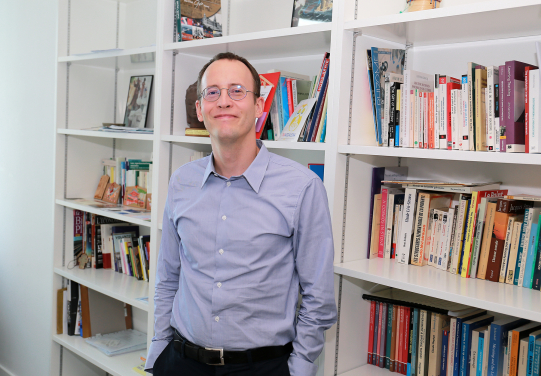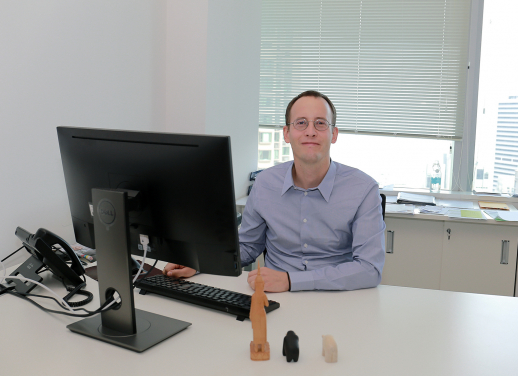Media
HKU-led study tracks 17 languages and finds all languages convey information at similar rates, regardless of whether they are spoken faster or slower
27 Oct 2019
Are some languages more efficient than others? More precisely, are some languages better and faster at conveying what their speakers have in mind?
In a recent study led by the University of Hong Kong (HKU) titled “Different languages, similar encoding efficiency: comparable information rates across the human communicative niche”, an international and interdisciplinary team comprising scientists at the Laboratoire Dynamique Du Langage (France), Ajou University (South Korea) and HKU analysed 17 languages and found that all languages convey information at similar rates, regardless of whether they are spoken faster or slower.
The findings have recently been published in academic journal Science Advances.
“Since language is at the heart of most human activities, and one of the cornerstones of human cultures, the temptation has often been to judge and rank human communities according to their mother tongue,” said Dr. Christophe Coupe, an Assistant Professor at the Department of Linguistics, HKU who led the study.
“As an example, Western scholars of the 19th century wondered about the richness of Chinese culture given that the Chinese language seemed to them much “simpler” than “refined” languages like French, German or Latin. Mandarin, like many other languages, indeed has no marking for tense or aspect on verbs, no marking of plural, no case system etc., all linguistic features commonly found in Indo-European languages. It may thus appear at first sight simpler than languages with a richer morphosyntax,” added Dr Coupe.
Aiming at comparing languages in terms of efficiency, the team analysed a total of 17 languages from 9 linguistic families: Vietnamese, Basque, Catalan, German, English, French, Italian, Spanish, Serbian, Japanese, Korean, Mandarin Chinese, Yue Chinese/Cantonese, Thai, Turkish, Finnish and Hungarian.
Some languages were first found to be spoken faster on average than others: their speakers produced more syllables on average per second. Japanese and Spanish for example, were 50% faster than languages like Vietnamese and Thai.
More precisely, the researchers estimated the average amount of information carried by syllables in each language, using entropy-based measures expressed in bits, following concepts established by C. E. Shannon in the 1940s. They found a trade-off between this information density and speech rate: ‘Information-light’ languages were found to have higher speech rates, while ‘information-dense’ languages showed the opposite tendency.
For example, the sentence ‘Por favor, quisiera pedir un taxi para mañana a primera hora’ in Spanish (‘Please take a request for an early-morning taxi’) was made of lighter syllables and produced faster on average than the equivalent sentence in Mandarin ‘qǐng bāng máng dìng gè zǎo shang de chū zū chē’ (请帮忙订个早上的出租车).
“Languages with higher speech rates are not necessarily more efficient than ‘slower’ languages, since languages also vary in how they pack information, given their phonology and grammar,” explained Dr Coupe.
Findings suggest that all languages convey information at similar rates, although they may look very different in terms of structures or speech rates - the studied languages all gathered around an average information rate of 39 bits of information per second.
“Interestingly, this rate is close to the so-called theta rhythms of neurophysiological activity measured in cortical areas, and thus reinforces the idea that theta oscillations may guide speech perception. This points to the possibility of universally shared constraints, both at the cognitive and at the functional level, of human beings in their language capacities,” said Dr Coupe.
“Languages are equally efficient because all human beings share the same cognitive capacities, and have the same need when it comes to communication. Such arguments may help to address old but still deep-rooted ideas of superiority or inferiority of some human groups.” He added.
For media enquiries, please contact Dr. Christophe Coupe (Tel: 5580 4122, Email: ccoupe@hku.hk) or Ms Rashida Suffiad, Communications and Public Affairs Office (Tel: 2857 8555, Email: rsuffiad@hku.hk)


